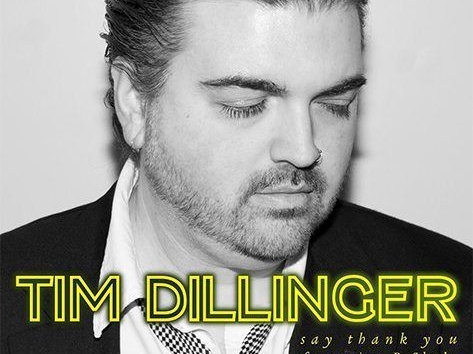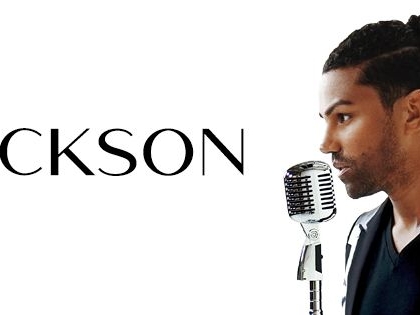Grown Folks Music caught up with the Love Ambassador and vocal legend Glenn Jones. We were missing him and decided to reach out to him. We’re glad we did because we had a candid conversation about navigating a career in the music industry– then and now, his forthcoming new project, his foundation– Love Jones Foundation and of course he answers the question, What is grown folks music? Read below and enjoy.
Career Influences
GFM: I heard you say recently in another interview that two of the artists who you admired were Peabo Bryson and El DeBarge. That struck me because those are two different voices. What did you hear in each of them?
GJ: At the time I was primarily a gospel singer and I was a songwriter. I appreciated the music that DeBarge was doing. The whole sound… the incorporation of R&B with the gospel flavor because that’s where El comes from… his whole family. I could appreciate the way he infused both. At the time I was writing a lot. I had written a gospel project that Rev. James Cleveland produced on me. It was just inspiring to me as a songwriter and as an artist because even though I was doing gospel, my direction from a writing standpoint was very contemporary.
With Peabo Bryson, I just thought the had one of the greatest voices I’d ever heard. I liked how smooth he was and how his execution was so on it. Those were the two people who inspired me to want to do R&B. I can go back and talk about Donny Hathaway, who had a huge effect on me. That was my idol. And you know… the Aretha Franklins and the Bobby Womacks and all of them. I was just trying to find my niche in the world of R&B and that was definitely an influence on me.
Finding a Fit
GFM: Speaking of finding your niche, you had singles that reached number two and number three on the charts. But, I noticed that you were on your fifth album– technically your sixth album– and your third [record] label before you had a number one single with “Here I Go Again”.
GFM: What struck me about that is, to me, that speaks about a time where artists were allowed to run the marathon of development and maturity. Now, they’re expected to come out of the gate sprinting. Can you talk about how it was in those days– having the support, the teams behind you and the time to develop as an artist.
GJ: It definitely gave me time to develop, because when I started doing R&B even though I had previously been a songwriter I wasn’t really writing. I was basically was just working with producers and songwriters. They wrote the material. I was kind of letting it sink in– the whole direction of writing and production for the kind of music that I was trying to do. It’s funny because when I got to Atlantic Records was when I got the number-one record, but I had done “We’ve Only Just Begun”, which was a number-two record. In any other situation, it would have been number one, but Michael Jackson was at number one [laughs]. But, yeah, there was definitely time to develop. As I proceeded in my career, I started to write and be involved more in the writing and the production of my music.
GFM: How did you end up changing labels like that? Were you trying to find the right fit for you?
GJ: Yeah, I was trying to find the right fit. When I did “We’ve Only Just Begun” I was at Jive Records. I appreciated what they did for me as far as being able to record, work with some good people and have a situation where they got behind the record and gave me a number- two record. But still, I was looking to go somewhere where I could have multiple singles from a project. With Jive Records, I did “We’ve Only Just Begun’, and then I had another song that I had recorded called “At Last” that was an incredible song. They were killing it in New York on WBLS and on Kiss FM– both stations– but the record label didn’t seem to think that it was a single. They thought it was more like a … jam. I forget the exact words that they used, but I tried to get them to release it as a single and they wouldn’t. That would’ve catapulted the project even further, because like I said, they were playing it in Houston, Atlanta and a lot of places. I wanted to be in a different environment. I don’t think that at the time Jive really knew how to market and promote R&B. They had begun to sign a lot of the hip hoppers and they were more so caught up in that. I wanted to go to another label where I could do my thing and get the support that I needed.
I first sat down in a meeting with Jheryl Busby from Motown. I flew out to California and had a good meeting with him. Then, I found out that Sylvia Rhone was interested in [me] sitting down with Atlantic [Records]. I came back to New York, sat down with her and just felt like that was the place that I needed to be. Some of my favorite artists were at one time on the Atlantic label. People like Donny Hathaway and Aretha Franklin. I wanted to work with Sylvia Rhone. I was impressed with what she had been able to accomplish, so that’s the place I decided to go.
Navigating the New Music Industry As a Veteran Artist
GFM: You were talking about picking and choosing the singles from the album and getting the record company to agree with you and/or get behind the record. With this new era for artists, you have more control of your art, your brand and its direction. You can put out what you want to put out. At the same time, it’s a lot more work. You don’t have the resources that you had at your disposal with a label. How are you navigating now this new territory and this new landscape of the music industry?
GJ: I think there’s positives and negatives with everything. I appreciate the freedom that you have to choose the singles and release records when you want to. But, like you said, it’s about having the resources and the machinery behind you. Everybody is pretty much independent. It’s a very competitive landscape. I’m about to release a new project. I’m finishing it up now. It will be my first project that’s independent. I had a record situation back in ’97 with my manager. He put together a label called SAR. It was an independent label, but we were able to get a distribution deal. At the time, my manager had the resources to be able to do a radio market. We had a budget for that. This time, it’s gonna be different. I guess it’s going to be real interesting, but at least this time I was able to do the record that I wanted… the songs and work with the people I wanted to work with.
Even with me going to Atlantic– it was good situation because that’s where I had “Here I Go Again”, which was a number one record. “I’ve Been Searching” was a big record for me over there. Then, I had a third song called “In You I Found Perfect Love” which was an amazing song that we tried to get them to release as a single and they wouldn’t. So, from that perspective I’m loving it [being independent]. Nobody can tell me what should be a single and what’s not be a single. [I’m] just really hoping we can have the resources to market the record because the record is such a great record. I want people to get exposed to it. When you don’t know… you don’t know. So, you can’t buy the record. I’ve seen a lot of people be able to make a significant standing with independent projects so I’m hoping that will be my case.
Stepping Out On Faith
GFM: What steps are you taking to bridge that gap? Do you have any younger people around you who are demonstrating the way it’s being done now? I’m not talking about necessarily the sound of the music. But, these young independent artists… how they’re making music and getting it out… they’re self contained. What tools are you using?
GJ: I’ve got some people– some young people that are in the business who have done it on an independent level who are giving me counsel as to what they did. Social media is definitely gonna be a big part of what we do. I do have a relationship with satellite radio. I’m hoping that will make a big difference. We’re putting together some capital for radio marketing. It’s been challenging funding the record myself… being able to record, work with the producers and get the musicians that I want to be on the project… and I’ve been able to do that. My thing is, if I can’t bet on myself, who will? You’ve gotta put your money where your mouth is. I believe in me. I’ve always believed in Glenn Jones. Whatever I can do to make it happen– whether that is physically or monetarily– then I’m going to do it. I’m stepping out on faith and I believe strongly in the record.
I just finished a track with Regina Belle called “Love By Design”, which is going to be the title of the album. It’s a duet that I did with Regina and it’s smoking. It’s amazing. Being able to call on friends like Regina who have that kind of following and reputation in the business and that kinda profile is going to help me. People look at the record and see, ‘Oh, he’s got a song with Regina Belle. Okay, that’s what’s up.’ So, the people who are into Regina Belle and the fans that she has… the radio people that like to play her records… I’m betting that they’re gonna give this record a spin and if they do they won’t be disappointed.
The record that I’ve done is actually smooth R&B– a combination of smooth jazz and smooth R&B. From what I can see and from the information and the advise I’ve been given from people who that’s where they nest– on the smooth jazz side– it’s a little easier to get some things happening over there. We have a marketing guy that everybody uses– from Maysa to Phil Perry to Gerald Albright– and this is the cat we’re gonna hire to work my record on that side.
The Challenges of Getting Support for New Music from Veteran Artists
GJ: My record is for grown folks. Straight up. I’m not trying to sound like none of these youngsters. None of that. I’m a grown man and that’s what it is. I think it’s the kind of record that my fans and some new fans are going to be able to appreciate. I know the trials and tribulations of commercial radio. I know how it is. I know you can be Patti LaBelle or Aretha Franklin and not be able to get a record added. That’s why I say ‘Thank God’ for satellite radio. ‘Thank God’ for social media.
People are always asking, ‘When are you going to have a new record?’ They don’t understand the challenge of doing that. Being able to do it and them being aware that you even put it out. Not everybody does social media, too. That’s another thing. A lot of times they don’t know because they’re not on social media like that.
I did a remake record back in ’07. An album for Shanachie [Records] called Forever: Timeless R&B Classics. It was ten of my favorite R&B songs. It was just a one-off deal that I did with them. The record was smoking. It was a great record… great record. But, nobody even knew that I did it. There are a couple of songs that I’m considering snatching from that project and stripping them into this CD, because the production and the sound is so timely, but timeless. It could fit right into what I’m doing now.
GFM: It [the lack of promotion/support of new music from veteran artists on radio] just gets me frustrated when I hear outlets advertise as grown this or grown that… or old school… or whatever. At our core we’re that. We introduce a lot of young artists and new artists as well. I just get frustrated because it’s like, if we’re really upholding these veteran artists, then we’ve got to promote their new things as well. We can’t always be reaching for their number-one [song] from 1991. The fans are stuck in there too because like you said, it’s a vicious cycle. If they don’t know that you have new music, [then] they’re still reaching for the old jams and they’re turning to their friends and saying, ‘You know what? This is the jam. What ever happened to Glenn Jones?’ The answer to that is nothing happened to Glenn Jones. He’s still around and singing.
“The Music Should Be Worthy”
GJ: I think you should add or choose the records based off of merit. If I’ve got a record which is a great record and somebody else comes with a record… say some younger artist… and it’s mediocre, but his record gets the spins because he’s in a different age bracket that I’m in, I don’t see where that’s fair. You’re supposed to be giving the people the best you can give them. A lot of the music now that even the younger artists are doing– they’re drawing from that we did back in the day. So, it’s not always the sound of the record, or the production or the performance. I just think the music should be worthy. Just to say, ‘Well you know, this person is 50 years old. No, we can’t play that.’ No. That’s crazy.
The Gift That Keeps On Giving
GFM: I said that we would come back to “I’ve Been Searching”. Your bio says that “We Only Just Begun” is your signature song. But, I would like respectfully submit to you that “I’ve Been Searching” is the people’s champ and the gift that keeps just keeps on giving.
GJ: [Laughs] See, you don’t even have to tell me that.
GFM: Whenever we post that song on our Facebook page, Mr. Jones, it explodes. Every. Single. Time. It gets so many like and so many shares. That song is so soul stirring. It still moves people. I think it’s because it’s so churchy, and I mean that as a compliment. I watched you on Kindred Presents performing it and how they just couldn’t let it go. It grabs you.
GJ: I will not argue with you on that. That’s why that song is the highlight of my show. That song is always last in my show. “We’ve Only Just Begun” may have gotten a higher chart position but that song, “I’ve Been Searching”– it never fails. That’s a song that I wrote with Bernard… Bernard Belle… Regina Belle’s brother. At the time I was living in [New] Jersey. I was working with Bernard because he and I did three songs together on that album. I told him that I had an idea for a song. I sat down at the piano and started to play it. He was like, “Okay yeah, yeah!” Once it got on it and put his thing on it, it was what it was. Yeah, it’s churchy, because Bernard is a Church Of God in Christ guy. I’m from a Pentecostal church. When I wrote and recorded the song… my friend LaLa… I played it for her and she was like, ‘That song is country.’ I said, ‘Yeah okay, WATCH this.’ [laughs] It just exploded. That’s one of my all time favorites.
As a matter of fact I have a niece who is a great singer. Her name is Y’Anna Crawley. She won Sunday’s Best back in ’09. From what I was told, she and Donald Lawrence are friends and he told her, ‘You ought to do redo that song, “I’ve Been Searching”.’ She’s getting ready to record a gospel version of it. A lot of songs that I write, they have that capability anyway of being flipped to the other side [because of] the approach to the lyrics that I usually do.
GFM: Tell us about the Love Jones Foundation
GJ: The Love Jones Foundation was something that I wanted to do for quite a while. My mother was deep in the church and she did a lot of missionary-type work as far as going to see people, visit them, help them and reaching out to them. My father passed when I was 22, so as she got older she spent a lot of time by herself. At one point she said, ‘I want you to just make me a tape. Record about four or five gospel songs of you just playing guitar and singing. I did that and I gave it to her. I gave her the CD and I noticed that was kind of like therapy for her. That was her company keeper.
I just thought about how many people, what we call the forgotten seniors– how many of them don’t have people to give them attention, show them love and just spend time with them. Once my mother passed I said, ‘This is the time for me to do this.’ She was the inspiration for that. We go into facilities . Like I said, we refer to them as the forgotten seniors, and we go in and we love on them. We take gifts and we raffle them off. I take my rhythm section and I play from Frank Sinatra to Andre Crouch. We have a little church. I entertain them. They sing. They dance. It’s just a day that we give them in appreciation for being who they are.
We also cater to the young people. We’ve done a couple of events in conjunction with the Boys and Girls Club to go in and do workshops. We do a PowerPoint presentation– taking them through the history of music and showing them different eras and different formats of music. We do quizzes and Q&A’s to see if they’ve really been taking in what we’ve been giving them. They love it. The last time I did it I had my friend {rapper] Bone Crusher come. He spoke to them. They loved him. We had open mic. We let everybody get up and spit on the mic and then we feed them. Just trying to do something positive… just trying to do something good.
GFM: What is your definition of Grown Folks Music?
GJ: A great lyric. A strong hook. A great melody. A very melodic approach. From an instrumentation point of view– not just dropping a beat and putting anything on top of it, [but] having something with a good subject matter or something that feels good. The thing is, music has changed in a lot of ways and that’s cool. Like you said, change is always good. But, the musicality has been taken out of a lot of the music… more so using loops and stuff like that… nah. I have enjoyed my career working with great musicians [who are] just phenomenal players. That’s my idea of grown folks music.
A lot of times we do songs where we keep it simple… just in the pocket or whatever, but [it was] just the fact that it was well thought out. There was a time when we would write songs and we’d write a verse. Okay, we’ve got the hook and we’ve got the verse. Okay, write another verse. Now, we’ve got to go to the bridge. A lot of times, people don’t even write bridges anymore. We sweated over that. You’d write a song and you’d do a re-write like, ‘We can make this lyric stronger. We can make this bridge stronger.’ In a lot of cases, to me, it didn’t seem like they were doing that anymore.
Follow Glenn Jones on Facebook
RELATED POSTS
August 16, 2013
GFM Spotlight Interview: Tim Dillinger
June 17, 2011








